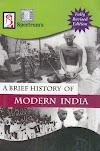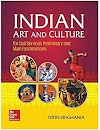Citizenship
"A nation as a society, forms a moral person and every member of it is personally responsible for his society"
Citizenship
- Part - II
- Article - 5 to 11
Citizen - A citizen is an individual who enjoys full membership of the country and thus he/she may enjoy all the rights that are available in the country.
The Constitution of India does not lay down comprehensive or permanent provisions related to citizenship in India.
The Constitution provides only for the Single Citizenship not dual Citizenship as that in USA.
Part II of the Constitution simply describes the class of person who would deemed to be Indian citizens at the time of commencement of the Constitution and has left the job of detailing the law of citizenship on the Parliament.
Article 11 confers the power on the Parliament to make laws on the Citizenship.
Article 11 has been used by the Parliament to enact Indian Citizenship Act 1955, which provides for the acquisition and termination of Indian Citizenship, subsequent to the commencement of the Constitution.
The Indian Citizenship Act is based on two legal principles -
- Jus Solic (Law of the Soil)
- Jus Sanguine (Law of the Blood)
Acquisition of Indian Citizenship
- Birth - related to Solic (Soil)
- Descent - related to Jus Sanguine (Blood)
- Incorporating of territory - related to Jus Solic (Soil)
- Registration and Neutralisation - related to Jus Solic (Soil)
Citizenship by the Birth (i.e., person is born in India)
- ≥ 26 January 1950 < 1 July 1987 → irrespective of parents
- ≥ 1 July 1987 < 3 December 2004 → either of the parents
- ≥ 3 December 2004 - till now → both parents
A person born in India on or after 26 January 1950 but before 1 July 1987 is a citizen of India irrespective of the nationality of the parents.
A person born in India on or after 1 July 1987 but before 3 December 2004 is a citizen of India by Birth, if either of his parents was citizen of India at the time of Birth.
A person born in India on or after 3 December 2004 is an Indian Citizen if only both the parents are citizen of India at the time of birth.
However, if only one of the parent is Indian then the other should not be an illegal migrant to India.
Citizenship by Descent (वंश) - not born in India but outside the territory of India.
- ≥ 26 January 1950 < 10 December 1992 → Only father
- ≥ 10 December 1992 < 3 December 2004 → Either of the parents
- ≥ 3 December 2004 - till now → Either of the parents with some conditions
A person born outside India on or after 26 January 1950 but before 10 December 1992 is an Indian Citizen by descent if his father was an Indian Citizen at the time of his birth.
A person born outside India on or after 10 December 1992 but before 3 December 2004 is considered an Indian Citizen by descent if either of his parents was Indian Citizen at the time of his birth.
A person born outside India on or after 3 December 2004 shall not be an Indian Citizen unless parents declared that the minor does not hold the passport of any other country and his birth is registered at an Indian consulate within 1 year of his birth.
Citizenship by incorporation of territory - When a new territory is occupied by India, the individuals living there shall have an option for opting Indian Citizenship.
For Example - When India acquired Goa, the people living there were given the option of staying there and accepting the citizenship of India or to return to their country in Europe.
Note - The above three types of citizens are called 'Natural born Indian Citizens'.
Citizenship by Registration - A person who is qualified to get Indian Citizenship through registration has to ordinarily stay in India for 7 years before making the application for citizenship.
The person who wants to get citizenship by registration has to stay in India for a total of 7 years before making application (6 years out of 8 years then 1 year continuous stay).
The people who can get citizenship through registration are -
- People of Indian Origin
- Overseas Citizen of India
- Citizen of Commonwealth Countries
- A person married to an Indian Citizen, etc.
However, if a person who is an Person of Indian Origin (PIO) or Overseas Citizen of India (OCI) for 5 years and living in India for 1 years before making the application shall get the citizenship through registration.
Citizenship by Naturalisation - Citizenship of India by Naturalisation can be acquired by a foreigner who is ordinarily resident in India for 12 years.
Note - The above two types (Citizenship by registration and naturalisation) are known as 'Naturalised Citizen of India'.
India does not discriminate between Natural Born Citizen of India and Naturalised Citizen of India.
NRI vs PIO vs OCI
- NRI - An Indian Citizen residing outside India
- PIO - Not an Indian Citizen but either of his parents is Indian
- OCI - PIO of specific 16 Countries
Loss of Indian Citizenship
- By Renunciation (own will)
- By Termination (if obtained other country's citizenship)
- By Deprivation (if citizenship is obtained illegally)
Loss of Citizenship by Renunciation - Renunciation is a voluntarily act on the part of Indian Citizen who wants to surrender his citizenship.
Government of India may or may not accept the application of renunciation.
Loss of Citizenship by Termination - It is an act of law where an individual who is a citizen of India voluntarily obtained the citizenship of a foreign country without surrendering his Indian citizenship, then the law terminated his Indian citizenship.
Loss of Citizenship by Deprivation - If a person has obtained Indian Citizenship
- by fraud or
- by providing fake documents or
- by hiding the facts or a citizen has been ordinarily residing outside the India for 7 years continuously or
- shows disloyalty to the constitution or illegally traded or
- communicated with anyone during the war
Then, the person can be deprived of his Indian Citizenship.
When an Indian Citizen renounces his Indian Citizenship, every minor child of that person also loses Citizenship. However, the child can resume Indian Citizenship when he attains the age of 18 years.
Previous Article - Fundamental Rights
Next Article - DPSP
Notes on other subjects
Optional Subject
Note - This is my Vision IAS Notes (Vision IAS Class Notes) and Ashutosh Pandey Sir's Public Administration Class notes. I've also added some of the information on my own.
Hope! It will help you to achieve your dream of getting selected in Civil Services Examination 👍





0 Comments